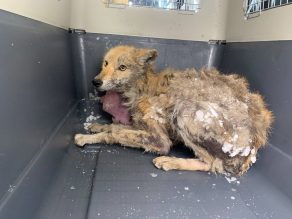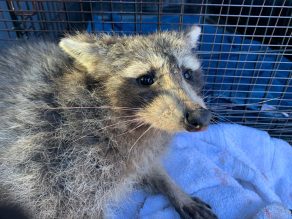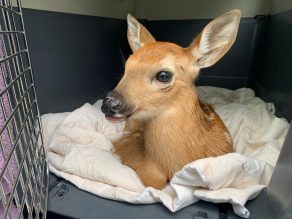SOS for Injured Animals and Wildlife
City services | July 7, 2022
Like people, animals sometimes need rescuing.
While the best course is usually to leave wildlife undisturbed, there are some situations involving animals where assistance is required.
Animals can get injured through fighting with other animals, an accidental fall or collision, or from a severe weather event.
The City’s Animal Services section is a key social service that helps to protect wildlife. Animal Services responds to emergencies 24/7, 365 days a year. Their team of experts is dedicated to rescuing wildlife and pets, and to providing food, shelter, care and basic medical care. This is in addition to protecting the community through the City’s Animal Care and Control By-law enforcement, education, as well as investigating standards of animal care.
2022 has been an especially critical year thus far. Rescues are on the rise as residents are increasingly reporting incidents of animal injury or distress.
As of June 15, Animal Services has successfully completed 2,418 animal recuses, with 307 animals being transferred to a licensed wildlife rehabilitation centre.
Typical rescues have included:
- A gosling tangled in fishing wire
- A coyote with a food jar stuck on its head
- A fox suffering from mange
- Baby opossums stranded on a busy street
- A skunk and a raccoon stuck in a car engine
Animals with severe injuries are at a higher risk for chronic pain, starvation and dehydration. They are also more vulnerable to predators. So the first few hours after an animal is rescued is always the most critical. Deprived of water, food and shelter, the animals are often wary and fearful.
While Animal Services is equipped to rescue animals, it is not a wildlife rehabilitation facility. Under provincial legislation, animals cannot be held for more than 24 hours at an Animal Services facility. Wildlife that require rehab are transferred to rehab facilities, approved by the Ministry of Northern Development, Mines, Natural Resources and Forestry where appropriate treatment is provided.
To date in 2022, more than 300 animals have been transferred to wildlife rescues for rehabilitation.
Animal Services frequently partners with numerous rehab facilities around the Greater Toronto Area. This includes Toronto Wildlife Centre, Urban Wildlife Care, The Owl Foundation, Hobbitsee Rescue and Shades of Hope.
Contact Animal Services if you encounter an animal that is:
- visibly sick or injured
- suffering or in immediate distress
- running in traffic or in danger
- locked in a hot vehicle
- wild and bites a pet or person
- acting aggressively to people or pets
Mississauga residents and visitors are always encouraged to respect wildlife and their natural habitats. If you see any animal in Mississauga that is injured, hurt or distressed, contact Animal Services at 311 or at 905-896-5858.
Learn more about urban wildlife by visiting mississauga.ca/wildlife.
Tags
Media contact
City of Mississauga Media Relations
media@mississauga.ca
905-615-3200, ext. 5232
TTY: 905-896-5151


